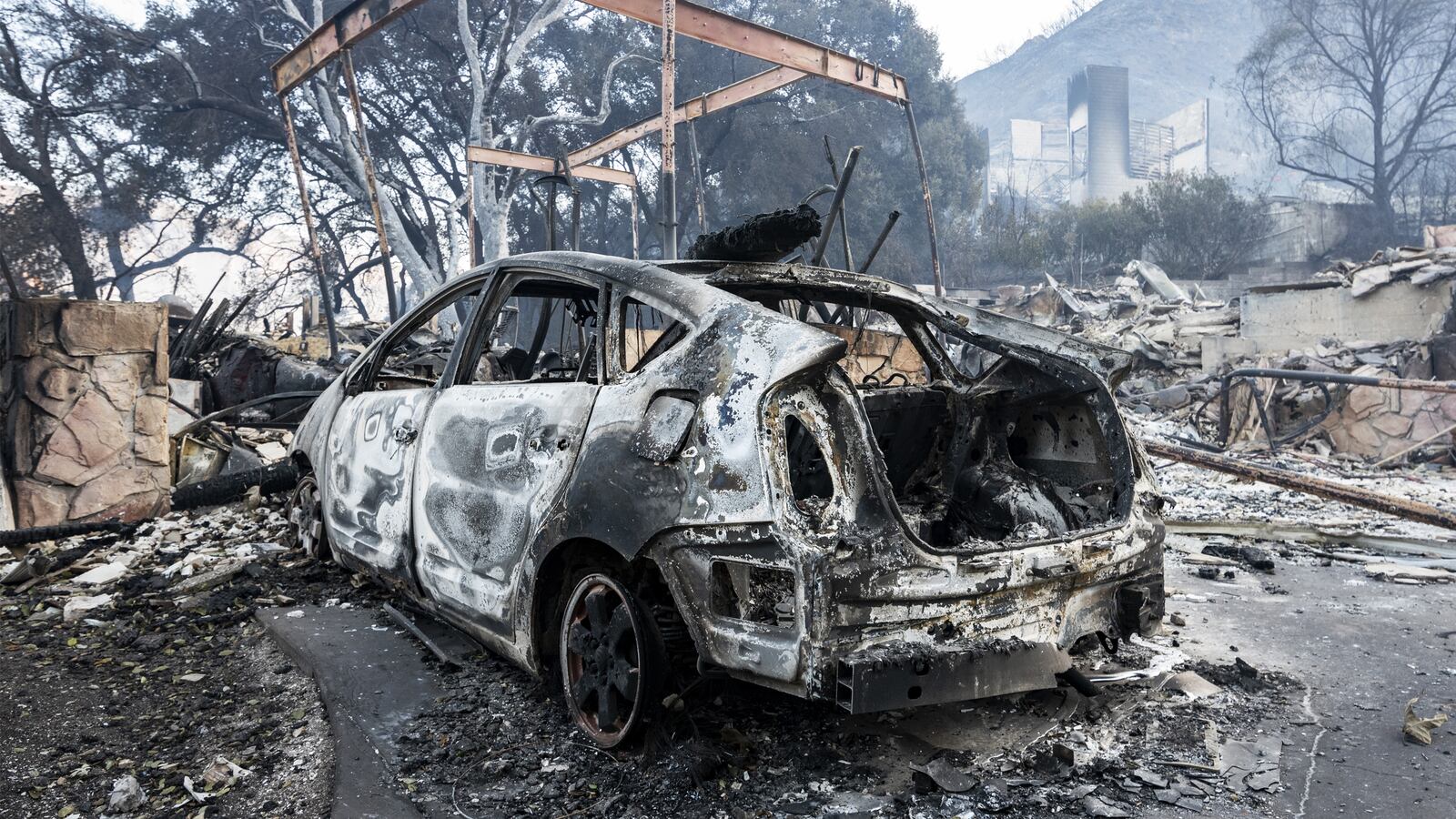LIVERMORE, California—Tom Price took a leap of faith the weekend after the Camp fire broke out to deliver his camp trailer to someone who lost their home.
He didn’t even know who that “someone” would be, but the veteran of Burning Man and co-founder of Burners Without Borders, didn’t care. Price eventually found the perfect match.
“I literally hooked up my trailer and searched for people to give it to,” says Berkeley resident Price, 51, who works in renewable energy. “I found someone who needed it and gave them the trailer to use until they can find a place to live.”
He described those people on his Facebook page: “Mr. and Mrs. Duane Michaels, formerly of Paradise, Ca. They literally ran for their lives from the fire with their in-laws and grandkids, hiding for a time in a Walgreens for two hours as the fire raged outside. Their home, their entire community is gone. They believe hundreds were killed. They have no idea when they will go home, they are sure however it’s gone.”
As of Thursday, the fire has claimed 56 lives, with almost 300 people unaccounted for and 8,650 residences and 260 commercial buildings destroyed—making the Camp Fire the deadliest in California history.
The search for bodies is still ongoing in the essentially decimated town of Paradise, and there’s no timeline when residents would be allowed back to their property to begin to rebuild. All told, an estimated 52,000 people have been evacuated.
FEMA administrator Brock Long told reporters the community faces one of the most complex rebuilding challenges in history. But for now, the main problem is finding some place for people huddled in tents and cars at fairgrounds, business parking lots and other spots.
“It’s an overwhelming problem in a county with only 1.5% vacancies and zero infrastructure to house all these people, “says Price. “Most are sleeping (in) tents and (have) no place to get out of the weather while living in dense toxic smoke.”
Price, who has also been working with a local church to help victims, decided to call on his friends from Burning Man to bring in their RVs, tents and other structures that could give shelter to people made homeless by the fire.
He reached out through social media to fellow attendees of Burning Man, also known as That Thing In The Desert or TTID:
On Saturday, Price will be leading a caravan of at least four more RVs from people who heeded that call to action.
“Individual efforts are just a start, but the bigger challenge is coming because nowhere is there an infrastructure to address an event this big,” Price says. “It’s clear that there’s no next step that can address this. Do you build Hoovervilles? And if you could build that for $5,000, now repeat that thousands of times. That’s not a solution.”
Price, who co-founded Burners Without Borders after Hurricane Katrina, wanted to keep the spirit of helping going. Burners Without Borders is a non-profit Burning Man related group that facilitates volunteers interested in manifesting Burning Man principles in the world by gifting their time and talents to help others.
Following Hurricane Katrina, Price and his group went for 9 months and did several million dollars of disaster relief work.
In order for people to get a FEMA trailer, the lot where their home was had to be scraped and cleaned beforehand. Contractors were charging about $50,000 according, to Price. They did the relief work for free.
“Burning Man is a no-trash-left-behind event, so we had bulldozers and people to use them so we donated at least $3 million in demo work and distributed about a million or more in donated materials,” Price says. “We brought in a huge geo dome from Burning Man as a distribution center for donations - frozen chickens, diapers, clothes - that were coming in from all over the country.”
Price says over the course of the time they were there, several hundred people volunteered their services.
“Red Cross does well in the coffee and blanket stage immediately after the disaster, but it is the clean-up and rebuild that we need real help with,” Price says. “I learned with Katrina that the existing structure for disaster relief is around the first phase, but it’s the rebuilding that is the problem.”
Price says that now, most people need cash, gift cards, hands and tools to clean up and rebuild. The last thing they need is more clothing, which he remembers being bulldozed into the dirt during the Katrina clean-up.
“It’s best to go to the place and let them tell you want they need instead of waiting for someone to tell you what to do,” Price says. “Talk to the person struggling and help them through it.”
He calls it the “new reality” of disaster relief.
“We are going to need to take care of each other and we need to use these opportunities to practice the skills of taking care of each other. “
And if he never gets his trailer back?
“There is that chance you’ll never get it back again. A chance that people could take my money or my trailer, but I choose to live in a world where that doesn’t happen,” Price says, adding “But I’m comfortable with the risk if it does.”






